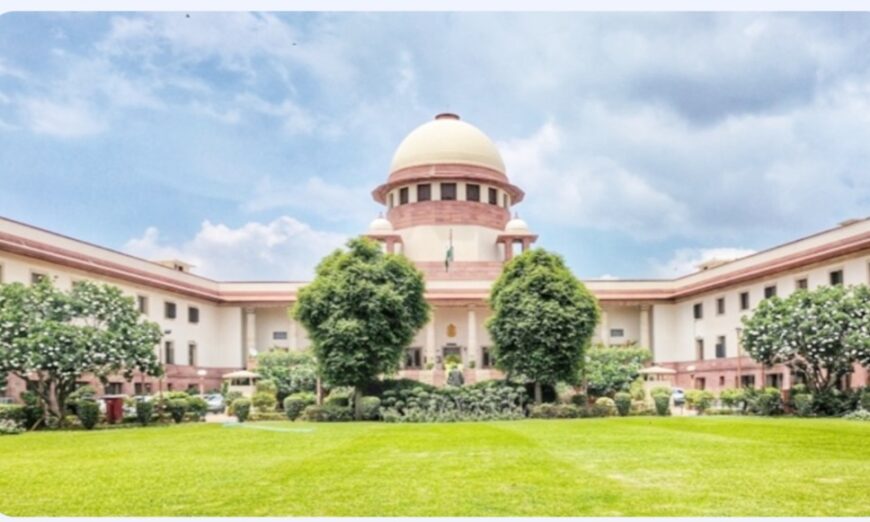The Supreme Court today gave the Centre four weeks to file its response on a batch of pleas seeking restoration of statehood to the Union Territory of Jammu and Kashmir.
A bench comprising Chief Justice BR Gavai and Justice K Vinod Chandran was hearing multiple pleas, pressing for the implementation of the Centre’s assurance to restore statehood to Jammu and Kashmir at the earliest.
Solicitor General Tushar Mehta, appearing for the Centre, told the apex court that there has been substantial progress in Jammu and Kashmir.
Mehta said that the Assembly elections were held peacefully in Jammu and Kashmir and an elected government was put in place as promised to the Constitution bench that had upheld the abrogation of Article 370 and the bifurcation of Jammu and Kashmir into two Union Territories.
A bench led by Chief Justice B R Gavai and Justice K Vinod Chandran was hearing multiple petitions, including those filed by academician Zahoor Ahmad Bhat and socio-political activist Ahmad Malik.
The petitioners urged the Court to ensure the implementation of the Centre’s earlier assurance to reinstate statehood to the Union Territory “at the earliest.”
During the hearing, the petitioners’ counsel pointed to the Supreme Court’s December 2023 verdict that upheld the abrogation of Article 370.
In that judgment, the Centre had given an undertaking to restore statehood, which the petitioners now seek to enforce.
Appearing for the Centre, Solicitor General Tushar Mehta informed the bench that discussions were ongoing with the Jammu and Kashmir administration regarding the matter. He described the issue as “sui generis”, a unique situation involving broader considerations.
“There was a solemn undertaking, yes, but various factors must be weighed,” Mehta said, while also alleging that certain individuals were attempting to portray a distorted and negative image of the region.
In its December 11, 2023 ruling, the Supreme Court unanimously upheld the Centre’s decision to revoke Article 370, which had granted special status to Jammu and Kashmir.
The Court also directed that assembly elections be conducted in the Union Territory by September 2024 and that statehood be restored at the earliest possible date.
A separate plea filed last year sought a Court directive to the Centre to complete the restoration of statehood within two months.
- Supreme Court gives Centre four weeks to reply on Jammu and Kashmir statehood pleas.
- Petitioners cite December 2023 judgement that upheld Article 370 abrogation.
- Centre says consultations are underway with J&K administration on restoration.
Counsel for the petitioners referred to the undertaking recorded in the Supreme Court’s December 2023 judgement that upheld the abrogation of Article 370 and directed that assembly elections be held in the Union Territory by September 2024, with statehood to be restored “at the earliest”.
Solicitor General Tushar Mehta, appearing for the Centre, told the bench that consultations were underway with the Jammu and Kashmir administration regarding the restoration of statehood.
“This is a sui generis (unique) problem and there are wider concerns involved. Of course, there was a solemn undertaking but several factors need to be considered,” he submitted, PTI reported.
The Solicitor General also alleged that some people were spreading a specific narrative and portraying a grim picture of the Union Territory.
On 11 December 2023, the Supreme Court unanimously upheld the revocation of Article 370, which had accorded special status to the erstwhile state of Jammu and Kashmir.
The judgement ordered that assembly elections be held in the Union Territory by September 2024 and its statehood be restored “at the earliest”.
Last year, a plea was filed in the top court seeking directions to the Centre for the restoration of statehood to Jammu and Kashmir within two months.
The matter will next be taken up after the Centre files its response within the four-week period granted by the court.

